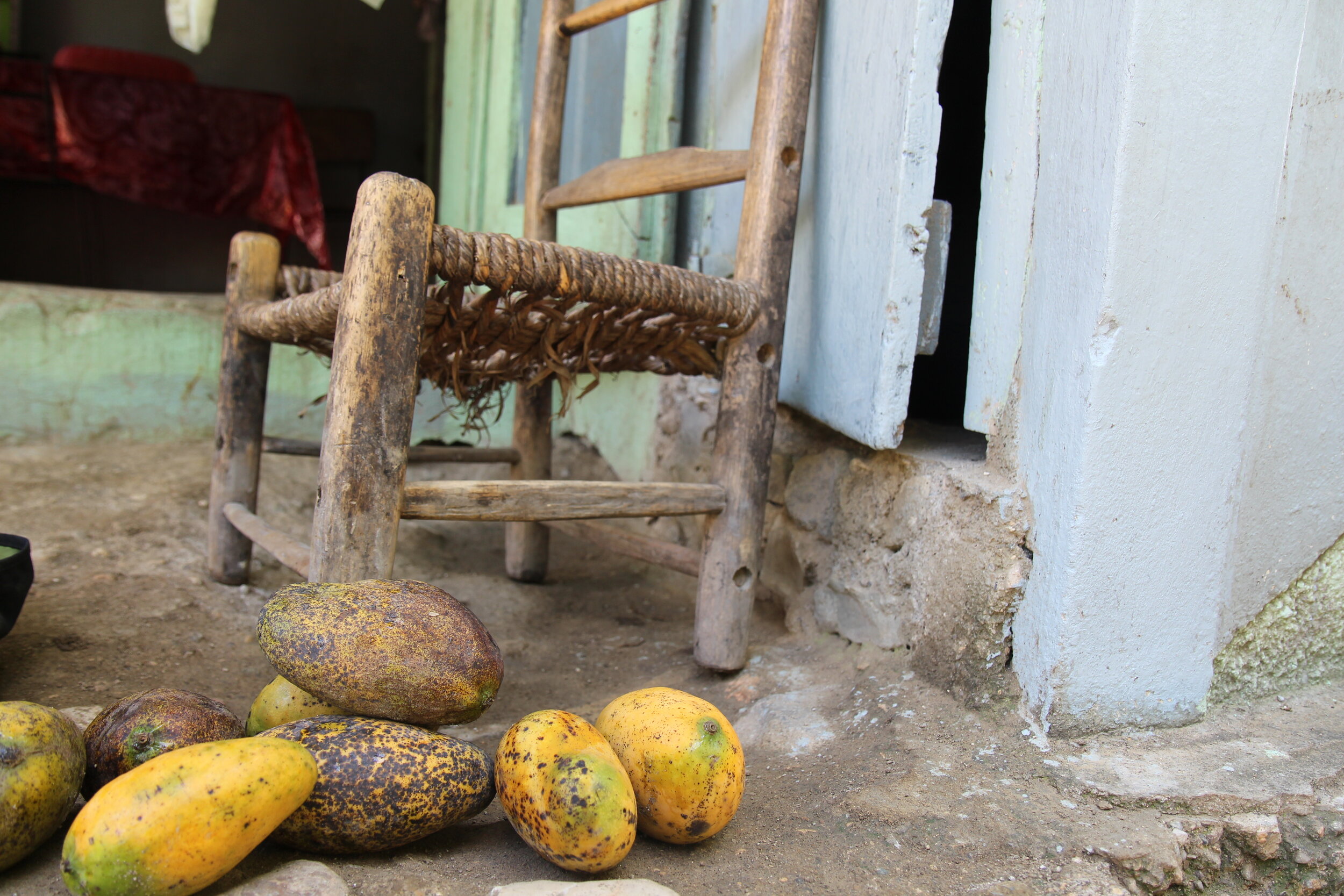Mango
Hello, I’m a proud Haitian mango. Oh, I realize you’ve seen my cousins in what you call supermarkets in America. The odds are that you’ve tasted one of us, too. But let me tell you, I am nothing like what you’ve sampled. The mangoes that reach big cities overseas are picked too early, before having the chance to ripen naturally. They end up heavy. Hardened. I am not like that. I. Am. Perfect.
The family who raised me inspected my family tree every day. When the exactly right moment arrived, their daughter picked me and placed me gently into her basket. Gently, I say, because my body was at that moment an exquisite balance of ripeness and firmness, and – if you don’t mind my bragging – nearly bursting with sweet juiciness. That was my day! Now I’m destined for the market in town. Tomorrow. I’ve heard how busy and colorful and bustling that place is. I am eager to experience it myself.
My older brother wasn’t so lucky. He fell from our family tree last week. He’d had a difficult life. First, he was pecked at by some bullying birds. Then yesterday a few passing kids shook him off his branch. He fell to the ground with a disturbing thud, quite painful for me to hear. The impact bruised him and split open his skin, but the boys quickly grabbed him, laughing as they ran off. I could see them taking turns biting into him as they disappeared from my view, jumping over the cactus fence that edges this garden.
I do feel bad for my brother. An unfortunate end to a promising life. But I am now worried for those kids, too. Don’t they know that cholera still lives in the soil, and that mangoes picked up from the dirt can spread that plague? It’s not our fault, of course, that cholera came into Haiti after the terrible quake of 2010. UN workers unwittingly brought it in, and 10,000 Haitians died of it in the past decade; but we mangoes suffer the bad rap.
Mothers tell their children, “Wash those mangoes before you eat them!” But here in the mountains of Haiti, there is no water for washing until women haul it on their head, carefully stepping up the steep hillsides. It’s heavy work. Water is precious and must be carefully conserved. But children who are hungry – and Haitian children always are – will grab and eat fallen mangoes.
Their stomachs speak more loudly than their mothers.



